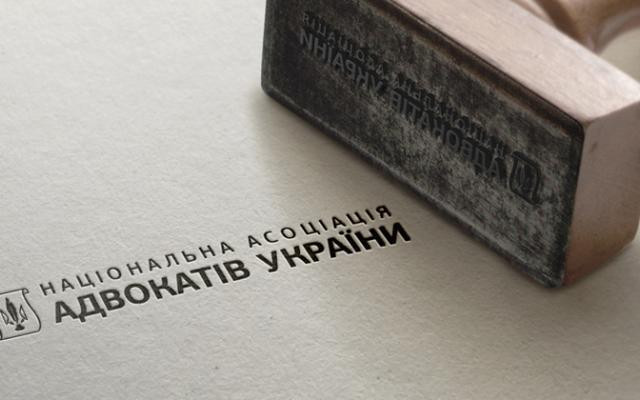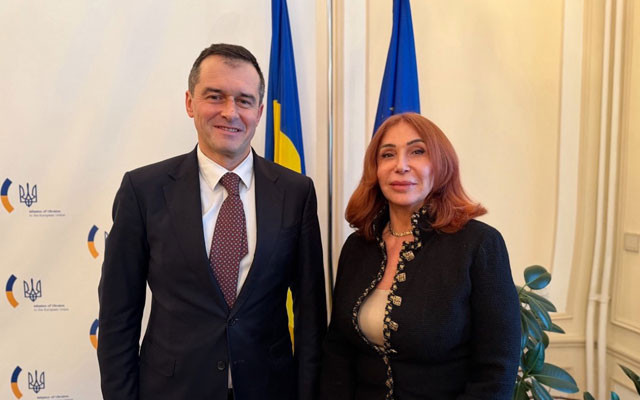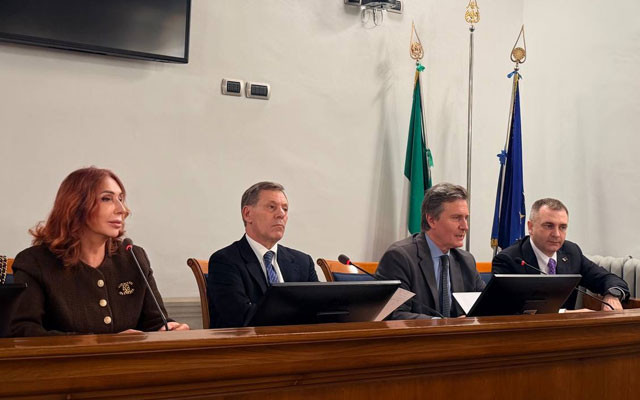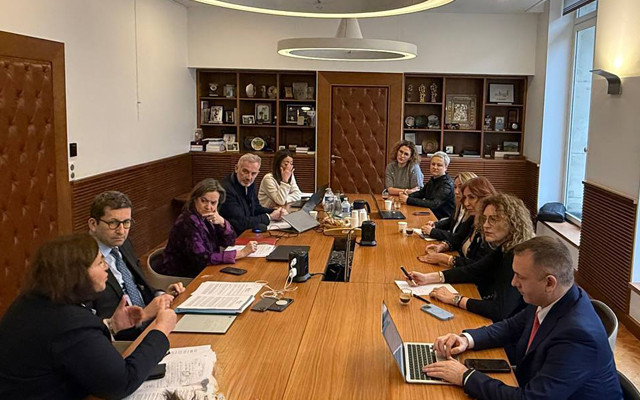Freedom of speech on the Internet: what the ECHR pays attention to

Today, the case law of the European Court of Human Rights is beginning to play a major role in resolving disputes related to the protection of freedom of speech on the Internet by Ukrainian judges.
Alina Pravdychenko, a member of the UNBA Committee on Media and Advertising Law, discussed this issue during the webinar «Freedom of Speech on the Internet: Recent Trends in the ECHR Case Law».
She noted that the right to freedom of speech is one of the basic rights and is guaranteed by a number of international documents and Ukrainian legislation, including on the Internet. Despite the uniformity of the general standards, there are many peculiarities in the regulation of freedom of speech on the Internet, which are used in the ECHR case law.
«The European Court of Human Rights has emphasized that since the potential harm from the dissemination of information on the Internet can be much greater, approaches to regulating freedom of speech online and offline should be different. Thus, in its judgments, the ECHR takes into account both the technical features of social networks, as evidenced by the consideration of cases on the legal nature of the distribution of hyperlinks (reposts) or likes (likes), and the general specifics of information dissemination on the Internet», - the lawyer emphasized.
The ECHR pays special attention to the following points:
1) ease of searching for information on the Internet and accessibility at any time (it takes into account how accessible to the public is sensitive information about specific individuals in each case, whether it is issued in the results of search engines, whether it is contained in archives exclusively for subscribers, whether it is paid for, etc);
2) the period during which the information has been or is available on the Internet (on the one hand, a long duration of information on the World Wide Web reduces its relevance and, consequently, the public interest in obtaining it, which affects decisions in cases on protection of the right to privacy; on the other hand, the longer the information is available on the Internet, the greater the potential harm from it, for example, in cases of hate speech);
3) the size of the potential audience (information contained on the Internet is available to a much larger number of people than, for example, information contained in a printed publication, which is why the court, in particular, takes into account the status of the person who published the content (for example, whether he or she is a well-known blogger or an ordinary user), the number of views of the information, etc);
4) a high degree of anonymity of users (the general principle is that identification of a person creates unwanted attention and deprives him or her of the opportunity to publish information and freely express their opinions, but anonymity should not be absolute, especially in cases of obviously illegal content).
In certain categories of cases, the ECHR also takes into account other aspects, including the negative effects of the constant availability of information on the Internet, the content and form of publication, and the political and social context. In particular, the judgment in the case of Gaponenko v. Latvia is noteworthy, where the ECHR, considering the publication of controversial statements about Latvia's relations with Russia and Western countries on a Facebook page, stated that the facts of Russian aggression against Ukraine and Georgia cannot be ignored. Accordingly, detention may well be a proportionate measure in the context of the need to prevent the repetition of online publications accessible to a wide audience, which could be crimes against the constitutional order.
The ECHR pays special attention to the liability of intermediaries for content published by third parties. In particular, it refers to the responsibility of social networks, bloggers, and news portals for user comments. In this case, both the status of the intermediary (whether it operates on a commercial basis, interferes with the content of publications or simply provides a platform for their placement, etc.) and the measures taken by it (for example, the availability of a system for monitoring and complaints about unlawful comments, the promptness of their removal) are taken into account.
Popular news

Self-government
The BCU demands a review of the composition of the government working group on reforming the advocacy profession
The President of the UNBA, BCU Lidiya Izovitova, appealed to the Cabinet of Ministers of Ukraine to review the composition of the working group on improving legislation in the field of advocacy and legal practice.

Discussion
Why lowering the age of marriage lacks legal logic
Although until 2012 there was a provision in family law that allowed children to marry from the age of 14 under certain circumstances, its return to Ukrainian law would contradict international obligations and the logic of criminal law.

European integration
Open dialogue between the UNBA and the European Commission on the path to EU
The Ukrainian National Bar Association held a working meeting in Brussels with Mr Wolfgang Nozar, Head of Unit for Governance, Rule of Law and Financial Assistance, Directorate-General for Enlargement and Eastern Neighbourhood (DG ENEST), European Commission.

Self-government
A report on Ukrainian advocacy was presented in the European Parliament
Can a shadow report on advocacy replace the political framework of the Roadmap on the rule of law with demands for the restructuring of self-government? Where is the line between accountability and the seizure of institutions? And how can we respond to narratives with data rather than impressions?

European integration
UNBA and Ukraine's representation to the EU have synchronized their priorities
On February 5, in Brussels, the President of the UNBA, BCU Lidiya Izovitova held a working meeting with the Ambassador Extraordinary and Plenipotentiary of Ukraine, Representative of Ukraine to the European Union Vsevolod Chentsov.

Guarantees of the practice of law
Proceedings opened following attack on advocate in Dnipro
The Committee for the protection of advocates' rights and guarantees of legal practice of the UNBA appealed to law enforcement agencies in connection with an advocate's report of an attack while performing his professional duties. The information was entered into the Unified Register of Pre-trial Investigations and a pre-trial investigation was initiated.

Interaction
«With us — to Europe»: Italian advocacy supports UNBA initiatives
On January 30, a meeting was held in Rome between a delegation from the Ukrainian National Bar Association and the National Bar Council of Italy (Consiglio Nazionale Forense, CNF) on the standards and practices of the legal profession and their significance for Ukraine's European integration process.

Interaction
France confirms cooperation with UNBA on reforms in the field of the rule of law
On January 29, a working meeting between representatives of the Ukrainian National Bar Association and the French National Bar Council (Conseil National des Barreaux, CNB) took place in Paris.
Publications

Volodymyr Matsko Extradition as a systemic form of rights violations

Victoria Yakusha, Law and Business The anti-corruption vertical cannot «take care» of the Bar as an institution, - acting head of the HQDCB

Censor.net Protecting advocates – protecting justice: addressing concerns about the new law

Ihor Kolesnykov A BRIEF SUMMARY REGARDING THE APPLICATION OF THE ORDER ON EXTENDED CONFISCATION IN LATVIA REGARDING FINANCIAL ASSETS OF…

Valentyn Gvozdiy WORKING IN A WAR ZONE

Lydia Izovitova Formula of perfection

Sergiy Vylkov Our judicial system is so built that courts do not trust advocates

Iryna Vasylyk Advocacy in the proclamation of Independence of Ukraine
